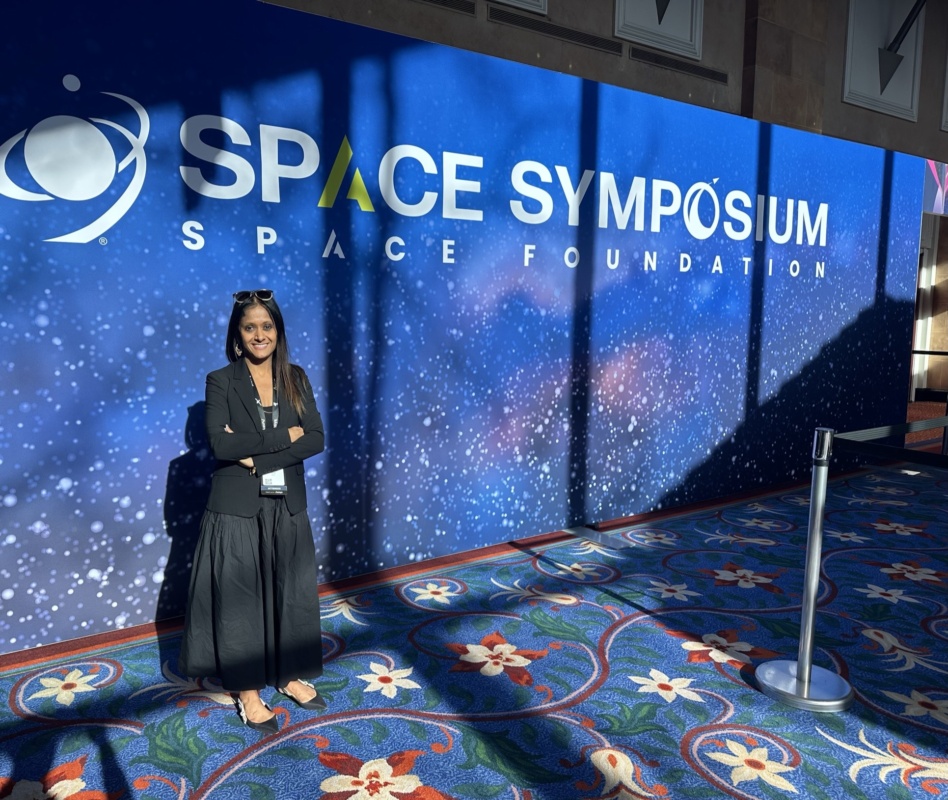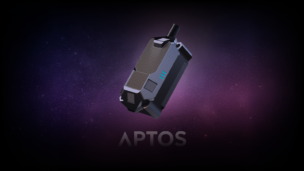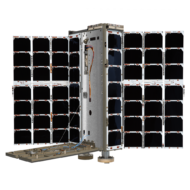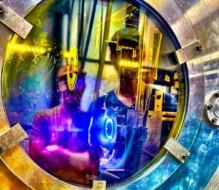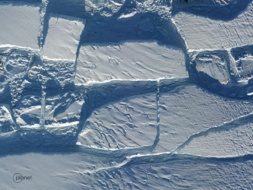Sita Sonty has only been CEO of Space Tango for a couple weeks, but she already has big plans for the company, including opening a new fundraising round and growing the startup’s global client base.
“Details are in the works. It is a private, friends and family round,” she told Payload. “A big part of the interest that I’m hearing from the capital markets is focused around customer heritage and scalability with a very lean and mean—in a good way—team. We will be kicking that off formally at some point soon.”
Space Tango 101: The Lexington, KY-based startup, which was founded in 2014, focuses on manufacturing and R&D in orbit, including for biotech missions such as building artificial retinas in zero gravity. The company’s CubeLab platform facilitates research projects on the ISS’ National Lab.
The company counts Mount Sinai, Cedar Sinai, UC San Diego, Florida Institute of Technology and the University of Michigan among its customers, and Sonty is planning to leverage those existing relationships to grow new ones.
“They’re going to go on the road with us to help us deepen our mission set, and what that hopefully will transform into is hopefully a more global platform of revenue,” she said.
Sonty, who had previous stints at SpaceX and Boston Consulting Group, also talked about her to-do list in her new role, how non-space companies are using LEO, and what responsibility commercial entities have in space diplomacy.
This transcript has been edited for length and clarity.
What drew you to take the job with Space Tango?
I’m super jazzed to have such an amazing team. It’s really about the people on the team and the mission that they are all serving. We are as close to the customer as you can get. When you have abstract conversations about zero-G and biomedical research, a lot of it is hypothetical, but Space Tango has been doing the work. It’s not theoretical.
You’re just a couple weeks into the job, but what are your top to-dos right off the bat?
It’s people first. I’m going to do a learning tour to discern what kind of talent needs we have. We’re on the precipice of growth, so what kind of talent do we need to scale Cube Lab into overdrive?
For the mission, we have customer heritage and flight heritage. At Boston Consulting Group, when we would have to provide a dispassionate analysis on a space company, it had to have heritage. It can’t just be a company that has expended a tremendous amount of capital expenditure to develop a product if it hasn’t actually sold the thing and if it hasn’t actually flown the thing. Space Tango has done both in spades.
What we want to do is actually have our customers do the talking for us. What I mean by that: Mount Sinai, Cedar Sinai, UC San Diego, Florida Institute of Technology, the University of Michigan—these are actual existing customers who have sent payload up, brought payload down, and had some pretty tremendous results from those scientific investigations. They’re going to go on the road with us to help us deepen our mission set, and what that will transform into is hopefully a more global platform of revenue.
All of this is going to cost some money, so I’ve got to talk to some people and get really refined on our value proposition. But I can share with you already, we’ve got a lot of interest in supporting our story. So watch this space, because my objective is to be responsible in that interest and convert it into meaningful return.
You’re talking about doing another fundraising round?
Yes, that’s right. Details are in the works, it is a private, friends and family round. I’m so honored by the level of interest in what the company has already done. At the outset, it used to take three years from designing to fielding the Cube Lab. We’ve shortened that now to nine months.
A big part of the interest that I’m hearing from the capital markets is focused around customer heritage and scalability with a very lean and mean—in a good way—team. We will be kicking that off formally at some point soon.
How are you starting to see non-space companies use LEO or pursue R&D in space?
It’s the perfect meld of my brand: getting folks outside the space industry to listen and sign contracts. Mount Sinai is working with us to help identify why artery tissue gets stiff over time and measure if the same principles apply in orbit. It’s not within the space economy, it’s from the outside, but not just starting to happen. We’ve done more than two years of research with Mount Sinai.
The science is not theoretical. The impact of and the economic value of the investigations are significant. It’s the return on investment for stemming heart disease.
You spent more than a decade with the State Department. How do you view the diplomatic importance of space? Does the commercial sector have a role to play here?
One term of art I was taught as a junior officer was economic statecraft. It’s a series of key tools in our foreign policy toolkit.
Especially over the last five years, there’s been a fundamental pivot away from government agencies financing space technology towards commercial financing. Commercial entities have more influence and can shape successful outcomes, not just the bottom line.
All of the countries in the space economy in the US are all parts of the foreign policy tool kit. Look at the value of the ISS. It’s been the Switzerland of the human race. As the ISS pivots to commercial space stations, Switzerland becomes less government sponsored and more of a multinational government and industry sponsored entity.
It’s a responsibility that we carry to recognize that we have a critical role, and we’re going to carry more responsibility to make sure we get the mission right.
